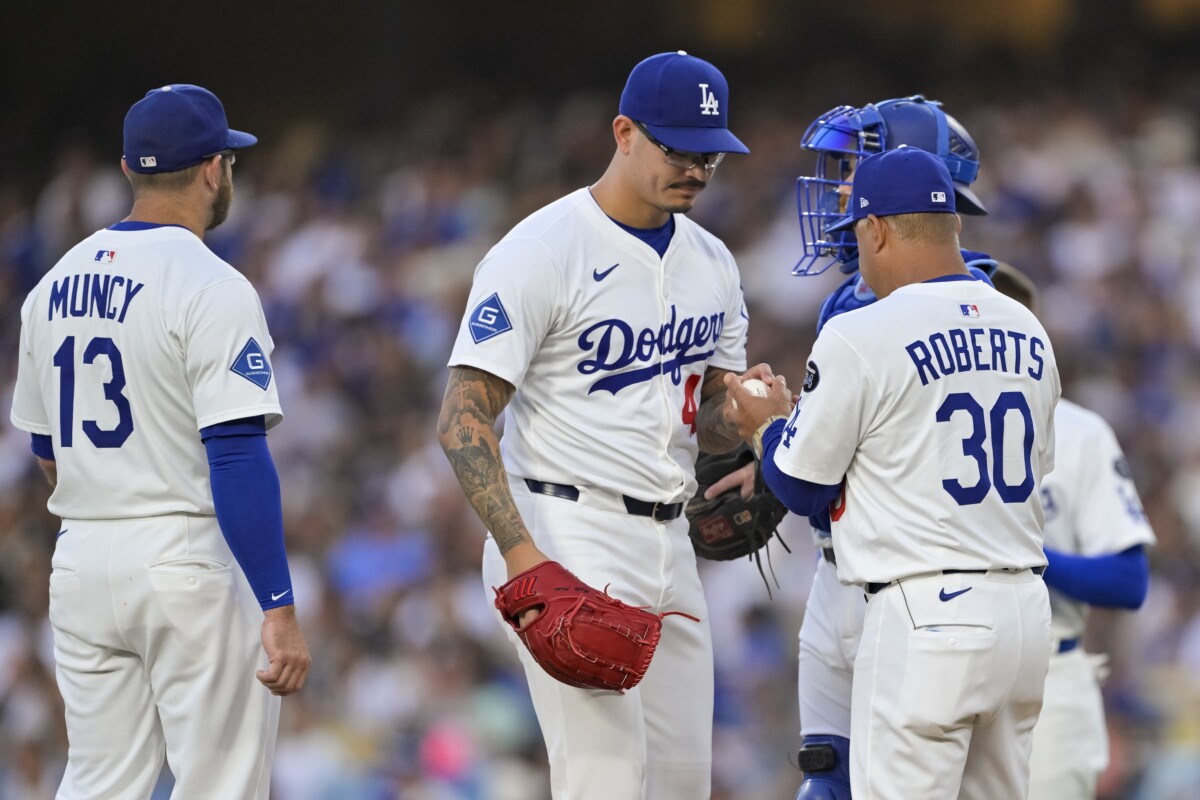Los Angeles Dodgers manager Dave Roberts’ recent pitching decision has sparked debate among MLB analysts and fans alike. In Monday’s series opener against the Philadelphia Phillies, Roberts opted to start left-hander Anthony Banda instead of the planned right-hander Emmet Sheehan. This unconventional move, aimed at exploiting perceived matchups against Phillies’ left-handed hitters Kyle Schwarber and Bryce Harper, ultimately backfired. This article delves into the details of the decision, the immediate fallout, and the broader implications for the Dodgers moving forward, drawing insights from MLB Network analyst Brian Kenny and former MLB catcher Anthony Recker.
The decision raises critical questions about the balance between data-driven strategies and in-game intuition in baseball management. Was Roberts’ gamble a calculated risk or an unnecessary deviation from a more conventional approach? Exploring these questions will shed light on the complexities of managing a high-stakes baseball team and the ever-present scrutiny that comes with it.
The Opener Strategy: A Risky Gamble?
Dave Roberts’ decision to use Anthony Banda as an opener was rooted in the desire to gain an early advantage against the Phillies’ lineup. By starting a left-hander against Schwarber and Harper, Roberts hoped to disrupt their rhythm and potentially secure a quick, clean first inning. However, this strategy immediately unraveled when Schwarber blasted a home run off Banda, followed by a walk to Harper. Roberts quickly pulled Banda, bringing in Sheehan earlier than anticipated.
Despite the rocky start, Sheehan delivered an impressive 5.2 innings of no-hit baseball. Roberts defended his decision, stating, “Obviously if I knew in hindsight, Schwarber was going to hit a homer – it still got us into the seventh inning. When Emmet came out of the game, we had a two-run lead. I felt we prevented runs up until that point.” This defense highlights the inherent uncertainty in baseball and the difficult choices managers face.
Brian Kenny’s Critique: ‘Why Get Cute?’
MLB Network analyst Brian Kenny strongly criticized Roberts’ decision, questioning the logic behind using Banda as an opener. Kenny argued that the opener strategy is most effective when employing a high-leverage pitcher or exploiting a platoon advantage. In Banda’s case, neither condition was met. Kenny pointed out that both Schwarber and Harper have strong statistics against left-handed pitchers, negating any perceived advantage.
Kenny questioned why Roberts would “get cute when you don’t need to?” He emphasized that Schwarber has a .365 on-base percentage and .593 slugging percentage against lefties, while Harper has also performed well. This critique underscores the importance of understanding player statistics and matchups when making strategic decisions.
Anthony Recker’s Perspective: Saving Sheehan
Former MLB catcher Anthony Recker offered a different perspective, suggesting that the Dodgers might have been trying to save Sheehan from facing the Phillies’ left-handed hitters multiple times in the game, especially with potential playoff matchups in mind. Recker proposed that Roberts might have wanted to assess Banda’s effectiveness against those hitters for future scenarios.
Recker also noted that Banda has historically performed well against lefties. Additionally, Emmet Sheehan’s statistics show reverse splits, with better numbers against left-handed hitters than right-handed hitters. This suggests that Roberts’ decision might have been influenced by a deeper analysis of player performance data.
Reverse Splits and Strategic Overthinking
The discussion around Sheehan’s reverse splits highlights the increasing complexity of baseball strategy. While conventional wisdom suggests that right-handed pitchers typically fare better against right-handed hitters and vice versa, Sheehan’s performance data challenges this notion. This data point adds another layer of complexity to Roberts’ decision-making process.
It’s possible that Roberts was overthinking the situation, trying to outsmart the Phillies by exploiting perceived weaknesses. However, as Kenny pointed out, sometimes the best approach is the simplest one: playing to your players’ strengths and avoiding unnecessary risks.
Hindsight is 20/20
Ultimately, Roberts’ decision did not pay off, as the Dodgers eventually lost the game in extra innings. However, it’s important to acknowledge the inherent uncertainty in baseball and the difficulty of predicting outcomes. As Roberts himself stated, hindsight is always 20/20. The Dodgers now have more information about Banda’s effectiveness in high-leverage situations against the Phillies’ top hitters.
It’s also worth noting that the Dodgers’ bullpen faltered later in the game, contributing to the loss. Jack Dreyer, another left-hander, gave up the lead in the seventh inning, further complicating the narrative around Roberts’ initial decision.
Key Takeaways and Final Thoughts
Dave Roberts’ decision to start Anthony Banda as an opener against the Philadelphia Phillies sparked controversy and raised questions about the effectiveness of the opener strategy. While the move was intended to gain an early advantage, it ultimately backfired, leading to scrutiny from analysts and fans.
This situation underscores the complexities of managing a baseball team and the constant pressure to make the right decisions. While data analytics play an increasingly important role in the game, the human element and the unpredictable nature of baseball cannot be ignored. As the Dodgers move forward, they will undoubtedly learn from this experience and continue to refine their strategies.

Leave a Reply